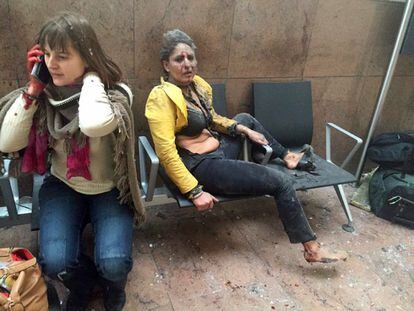Spain maintains level four terror alert after Brussels blasts
Acting foreign minister says Islamic State are likely behind the explosions


The Spanish government is for now maintaining the country's terror alert level at four, the second highest there is, in the wake of Tuesday’s attacks in Brussels.
Spain’s acting foreign minister, José Manuel García-Margallo, said that Islamic State (ISIS) was likely responsible for the two explosions at Belgium’s Zaventem airport, which were followed by another blast inside the Brussels subway system on Tuesday morning.
Spanish authorities are following the investigation and remain on alert for a high possibility of a terrorist attack in Spain – the current level four alert already entails controls at airports, stations and critical infrastructure.
Spain is another center of Islamist activity on the continent
This alert was issued after the jihadist attacks against French satirical magazine Charlie Hebdo in January 2014, and maintained after the Paris massacre of November 13.
The Tuesday blasts come three days after the arrest of Salah Abdeslam, a suspect in the Paris attacks, in the Brussels neighborhood of Molenbeek. Several other related arrests in the same area demonstrate how Belgium has become a hotbed of jihadism in the heart of Europe.
Spain is another significant center of Islamist activity on the continent: 45% of the jihadists arrested in Spain since 2013 had Spanish nationality. A year ago, the Popular Party and the Socialist Party put aside their differences to sign an anti-terrorist pact aimed at fighting jihadism in Spain.
Ever since the Islamist attacks against Madrid commuter trains on March 11, 2004, there have been 616 arrests in connection with jihadist activities in Spain. A further 139 combatants are thought to have traveled to fight in Syria or Iraq, of whom 25 have returned to Spain, posing a particular threat to national security due to their combat training.
English version by Susana Urra.










































